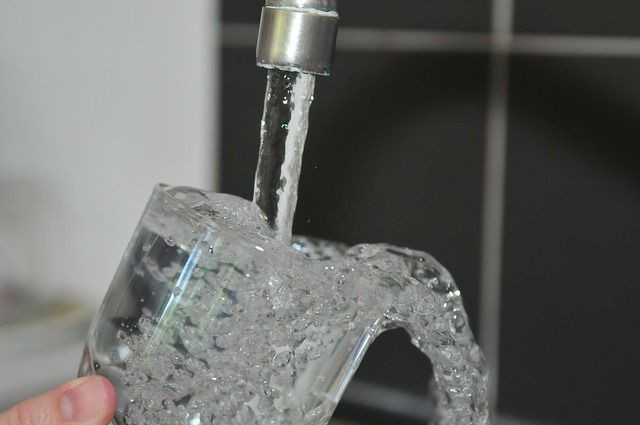'Water Bar' Only Serves Free Tap Water From Various Locations Around Minneapolis

Imagine it’s Friday night and your friends want to go out for a drink. If that bar served only water, would you still want to go? The creators behind the Water Bar are banking that you would.
The establishment isn’t actually a full-fledged bar, per se. Instead, it’s an art installation by Colin Kloecker and Shanai Matteson, directors of the Works Progress Studio. The idea is to shed light on the fact that many people take access to water for granted. More than 90 percent of the world has access to water, but that doesn’t mean it’s all high quality. Poor management can lead to problems like the water crisis in Flint, Mich., and the black water that ran through taps in Crystal City, Texas.
“People think Minnesota doesn’t have any water problems, that we have so much water because we’re the land of 10,000 lakes,” Shanai Matteson told MinnPost. “Water is not something people think about, but [Minnesota has] potential water shortage problems and water quality problems.” She added that, “across Minnesota, most people get their drinking water from groundwater sources, and those are not immune to pollutants.”
When partons stop by the Water Bar, they’re treated to free tap water from a variety of local sources. “[It’s] primarily Minneapolis tap water, but we’ll have other local metro area taps, some rotating taps, maybe sometimes tap waters from other parts of Minnesota,” Matteson said. If customers want small samples of all the waters on tap, they can order a flight, basically four or five miniature glasses.
“We do tasting flights,” Matteson said. “There are subtle differences in how the water is treated; for example, private well water is not really treated in the same way. Sure, it’s tested and safe to drink, but it tastes different from city water. And we travel to other places and you can really tell where water isn’t quite so abundant or where cities don’t have the same level of treatment methods in place.”
The Water Bar began as a pop-up art project in 2014. It’s served more than 30,000 people in Minnesota, Arkansas, Illinois, and North Carolina while “sparking conversations about the importance of local water to lives and communities and helping to equip people to engage with complex and urgent issues stemming from our collective attitudes and approaches to [the] environment — issues like water pollution and scarcity, land use and urban development, climate change and environmental injustice,” according to the bar’s website.
In a YouTube video from 2014, environmental scientist Dr. Carrie Jennings broke down some of the local taps featured at the Water Bar. She talks about the treated surface waters from Minneapolis and St. Paul, as well as water drawn from bedrock sources. She even describes one water as a “blend of a deep bedrock source with a glacial source.”
Having an environmental scientist break down the taste of different tap waters like a sommelier is fine, but what does the average person think of the Water Bar? Medical Daily asked Mona Smith, who attended a Water Bar event at the Minnesota Humanities Center last fall.
“When I experienced the Water Bar, I was surprised by the significant different flavors of tap and well waters,” Smith said. “The taste differences were clear and the preferences among the visitors varied widely.” The experience kicked off lively conversations about childhood memories, she added, “which quickly moved into deeper conversations about our disconnection from where our tap water comes from and how it goes from the river or lake to our kitchens.”
If you’re wondering how the project makes any money when it gives away its only product for free, Matteson and Kloecker said that’s their most frequently asked question. The duo set up a GoFundMe page to try and raise cash for a brick-and-mortar in Minneapolis but are currently quite a distance from their goal.



























